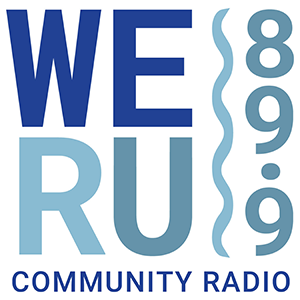Producers/Hosts: Jim Campbell and Amy Browne
This series is made possible in part by a grant from the Maine Arts Commission
Maine: The Way Life Could Be, a series in which we look at challenges and opportunities facing Maine in the lifetimes of people alive today.
This episode:
What are the most important issues Mainers will be facing in the lifetimes of those of us alive today?
That is the question Amy Browne and Jim Campbell, cohosts of Maine: The Way Life Could Be, posed to listeners nearly a year ago. The year-long series that followed has focused on the issues you raised in your responses.
In this episode we wrap up the series with a look back — and a look ahead.
Guests:
Donna Loring, Penobscot Indian Nation Tribal elder and former council member. She represented the Penobscot Nation in the State Legislature for over a decade, and is a former Senior Advisor on Tribal Affairs to Governor Mills. Donna is the author of “In The Shadow of The Eagle A Tribal Representative In Maine”. You can catch up on her Wabanaki Windows series on tribal sovereignty on the WERU archives here, and hear her new shows on the 4th Tuesday of every month at 4.
Amy Fried, Professor of Political Science at the University of Maine. Fried’s most recent book is At War With Government: How Conservatives Weaponized Distrust from Goldwater to Trump, published in 2021. She is in the process of finishing a new book on New England politic, slated for publication next year. Professor Fried also writes a biweekly column in the Bangor Daily News
Dr. Phil Caper of Maine AllCare. From his bio on Physicians for a National Health Program (PNHP), “Dr. Phil Caper received his BA, MS and MD degrees at UCLA, and trained in internal medicine on the Harvard Medical Unit at Boston City Hospital. He has held professorships at Dartmouth Medical School and the University of Massachusetts Medical School, where he was also Vice-Chancellor for Health Affairs, chief of the medical staff, and hospital director. He has been an adjunct lecturer on health policy and management at the Harvard School of Public Health, a research associate at Harvard’s Kennedy School of Government and an associate in health policy and management at the Johns Hopkins School of Public Health. From 1971 to 1976, he was a professional staff member on the United States Senate Labor and Human Resources subcommittee on health, chaired by Senator Edward Kennedy (D-Mass.).”
Dr. Caper was a charter member of the nation’s top health care advisory panel, the National Council on Health Planning and Development from 1977 to 1984, chairing the panel from 1980 to 1984. He was also the founder and chairman of the Codman Group from 1986 to 2001, a health care software and consulting company with an international reputation and clientele. He is a founding member of the National Academy of Social Insurance and is a founding board member of Maine AllCare, the Maine chapter of Physicians for a National Health Program. He is also a former national board member of PNHP. He has published numerous articles in professional journals and written many letters to the editor and op-ed articles advocating for a publicly run universal health care program.
About the hosts:
Jim Campbell has a longstanding interest in the intersection of digital technology, law, and public policy and how they affect our daily lives in our increasingly digital world. He has banged around non-commercial radio for decades and, in the little known facts department (that should probably stay that way), he was one of the readers voicing Richard Nixon’s words when NPR broadcast the entire transcript of the Watergate tapes. Like several other current WERU volunteers, he was at the station’s sign-on party on May 1, 1988 and has been a volunteer ever since doing an early stint as a Morning Maine host, and later producing WERU program series including Northern Lights, Conversations on Science and Society, Sound Portrait of the Artist, Selections from the Camden Conference, others that will probably come to him after this is is posted, and, of course, Notes from the Electronic Cottage.
Amy Browne started out at WERU as a volunteer news & public affairs producer in 2000, co-hosting/co-producing RadioActive with Meredith DeFrancesco. She joined the team of Voices producers a few years later, and has been WERU’s News & Public Affairs Manager since January, 2006. In addition to RadioActive, Voices, Maine Currents and Maine: The Way Life Could Be, Amy also produced and hosted the WERU News Report for several years. She has produced segments for national programs including Free Speech Radio News, This Way Out, Making Contact, Workers Independent News, Pacifica PeaceWatch, and Live Wire News, and has contributed to Democracy Now and the WBAI News Report. She is the recipient of the 2014 Excellence in Environmental Journalism Award from the Sierra Club of Maine, and Maine Association of Broadcasters awards for her work in 2017 and 2021.
Podcast: Play in new window | Download



 Donate to WERU Today!
Donate to WERU Today!